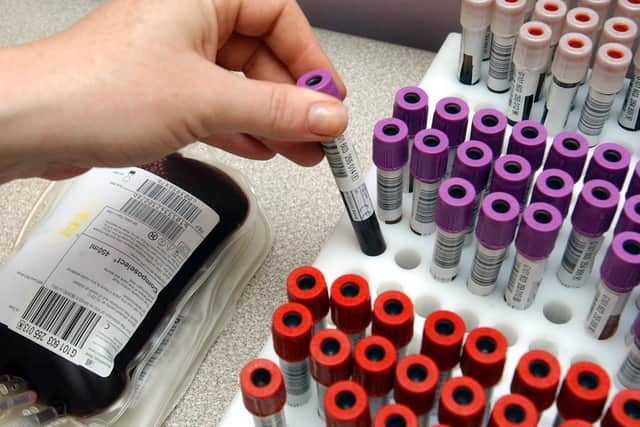Compensation for some family members affected by contaminated blood scandal


Victims and bereaved partners in Scotland will see in an increase in annual payments, and a £10,000 lump sum bereavement payment will be given to the families of those who have died since the initial compensation scheme began.
Paymaster General Penny Mordaunt MP announced changes on Thursday to resolve disparities between the existing scheme across the four nations. Increases in annual payments will be backdated to 2019.
Advertisement
Hide AdAdvertisement
Hide AdThe contaminated blood scandal saw as many as 30,000 people across the UK and 3,000 in Scotland infected with HIV and hepatitis in the 1970s and 80s after being given contaminated blood imported from the US.


Many patients were haemophiliacs, along with others who received blood transfusions.
Around 2,400 people died in what is recognised as one of the worst treatment scandals in the history of the NHS.
Some campaigners have welcomed the payment increases, but others said they do not go far enough to support the parents or children of those who have died.
“This uplift today will help a lot of people in Scotland who have lost loved ones or lived with the consequences of being infected with potentially deadly viruses for literally decade,” said Joyce Donnelly, Convenor of the Scottish Infected Blood Forum.
"More work remains to be done but this is another step in the right direction.”
Jason Evans, founder of campaign group Factor 8, said the exclusion of some family members had caused “distress”.
"Parents whose children died before getting married and those who have lost one or both parents remain entirely excluded from any ongoing support whatsoever. We have heard from many already thoroughly distressed members that their upset has been compounded,” he said.
Advertisement
Hide AdAdvertisement
Hide Ad“The government has now created a situation where some bereaved families will receive annual support, while others receive nothing. We hope that the government will urgently address that disparity.”
Justine Gordon-Smith, whose father Peter received contaminated blood and died three years ago at 79, said the payments were “like being given crumbs”.
"We weren’t included, and the whole scheme that they offered is a last-minute attempt before an election,” she said.
"It’s not offering any really substantial support.”
Ms Gordon-Smith also called for better palliative care for those, like her father, suffering “the most gruesome, ghastly deaths” as a result of damage to the liver caused by contaminated blood.
An inquiry into the scandal chaired by Sir Brian Langstaff is ongoing, and virtual hearings continued on Thursday.
Bill Wright, chair of Haemophilia Scotland, said: “We look forward to the findings of the Infected Blood Inquiry’s ongoing investigation of the effectiveness of the different support schemes across the UK and the separate Review announced by the Paymaster General this morning.
"We are already fully engaged with the judicial Inquiry led by Sir Brian Langstaff and will seek to engage actively with the review looking at options for a framework for compensation.”
Des Collins, senior partner at Collins Solicitors and legal adviser to more than 1,500 people affected by the scandal, said: “Whilst an uplift to the existing financial support provision, which provides short-term help to ease the suffering of the infected and affected, is welcomed, it regrettably still does not include everyone affected, such as parents of children who have died, or children who have lost parents as a result of this scandal.”
A message from the Editor:
Thank you for reading this article. We're more reliant on your support than ever as the shift in consumer habits brought about by coronavirus impacts our advertisers.
If you haven't already, please consider supporting our trusted, fact-checked journalism by taking out a digital subscription.
Comments
Want to join the conversation? Please or to comment on this article.